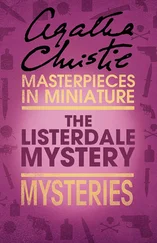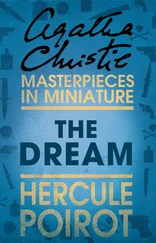Agatha Christie - The Labours of Hercules
Здесь есть возможность читать онлайн «Agatha Christie - The Labours of Hercules» весь текст электронной книги совершенно бесплатно (целиком полную версию без сокращений). В некоторых случаях можно слушать аудио, скачать через торрент в формате fb2 и присутствует краткое содержание. Жанр: Классический детектив, на английском языке. Описание произведения, (предисловие) а так же отзывы посетителей доступны на портале библиотеки ЛибКат.
- Название:The Labours of Hercules
- Автор:
- Жанр:
- Год:неизвестен
- ISBN:нет данных
- Рейтинг книги:4.33 / 5. Голосов: 3
-
Избранное:Добавить в избранное
- Отзывы:
-
Ваша оценка:
- 80
- 1
- 2
- 3
- 4
- 5
The Labours of Hercules: краткое содержание, описание и аннотация
Предлагаем к чтению аннотацию, описание, краткое содержание или предисловие (зависит от того, что написал сам автор книги «The Labours of Hercules»). Если вы не нашли необходимую информацию о книге — напишите в комментариях, мы постараемся отыскать её.
The Labours of Hercules — читать онлайн бесплатно полную книгу (весь текст) целиком
Ниже представлен текст книги, разбитый по страницам. Система сохранения места последней прочитанной страницы, позволяет с удобством читать онлайн бесплатно книгу «The Labours of Hercules», без необходимости каждый раз заново искать на чём Вы остановились. Поставьте закладку, и сможете в любой момент перейти на страницу, на которой закончили чтение.
Интервал:
Закладка:
He had decided to take a holiday in Herzoslovakia so as to get right off the beaten track and have a real rest from everyone and everything. The hotel at Lake Stempka, though small, was comfortable and not overcrowded. The few people there were mostly foreigners. So far the only other English people were an elderly woman, Mrs Rice, and her married daughter, Mrs Clayton. Harold liked them both. Elsie Clayton was pretty in a rather old-fashioned style. She made up very little, if at all, and was gentle and rather shy. Mrs Rice was what is called a woman of character. She was tall, with a deep voice and a masterful manner, but she had a sense of humour and was good company. Her life was clearly bound up in that of her daughter.
Harold had spent some pleasant hours in the company of mother and daughter, but they did not attempt to monopolise him and relations remained friendly and unexacting between them.
The other people in the hotel had not aroused Harold's notice. Usually they were hikers, or members of a motorcoach tour. They stayed a night or two and then went on. He had hardly noticed any one else – until this afternoon.
They came up the path from the lake very slowly and it just happened that at the moment when Harold's attention was attracted to them, a cloud came over the sun. He shivered a little.
Then he stared. Surely there was something odd about these two women? They had long, curved noses, like birds, and their faces, which were curiously alike, were quite immobile. Over their shoulders they wore loose cloaks that flapped in the wind like the wings of two big birds.
Harold thought to himself. "They are like birds." He added almost without volition, "birds of ill omen."
The women came straight up on the terrace and passed close by him. They were not young – perhaps nearer fifty than forty, and the resemblance between them was so close that they were obviously sisters. Their expression was forbidding. As they passed Harold the eyes of both of them rested on him for a minute. It was a curious, appraising glance – almost inhuman.
Harold's impression of evil grew stronger. He noticed the hand of one of the two sisters, a long claw-like hand… Although the sun had come out, he shivered once again.
He thought: "Horrible creatures. Like birds of prey…"
He was distracted from these imaginings by the emergence of Mrs Rice from the hotel. He jumped up and drew forward a chair. With a word of thanks she sat down and, as usual, began to knit vigorously.
Harold asked: "Did you see those two women who just went into the hotel?"
"With cloaks on? Yes, I passed them."
"Extraordinary creatures, didn't you think?"
"Well – yes, perhaps they are rather odd. They only arrived yesterday, I think. Very alike – they must be twins."
Harold said: "I may be fanciful, but I distinctly felt there was something evil about them."
"How curious. I must look at them more closely and see if I agree with you."
She added: "We'll find out from the concierge who they are. Not English, I imagine?"
"Oh no."
Mrs Rice glanced at her watch.
She said: "Tea-time. I wonder if you'd mind going in and ringing the bell, Mr Waring?"
"Certainly, Mrs Rice."
He did so and then as he returned to his seat he asked: "Where's your daughter this afternoon?"
"Elsie? We went for a walk together. Part of the way round the lake and then back through the pinewoods. It really was lovely."
A waiter came out and received orders for tea. Mrs Rice went on, her needles flying vigorously: "Elsie had a letter from her husband. She mayn't come down to tea."
"Her husband?" Harold was surprised. "Do you know, I always thought she was a widow."
Mrs Rice shot him a sharp glance.
She said dryly: "Oh no, Elsie isn't a widow." She added with emphasis: "Unfortunately!"
Harold was startled.
Mrs Rice, nodding her head grimly, said: "Drink is responsible for a lot of unhappiness, Mr Waring."
"Does he drink?"
"Yes. And a good many other things as well. He's insanely jealous and has a singularly violent temper." She sighed. "It's a difficult world, Mr Waring. I'm devoted to Elsie, she's my only child – and to see her unhappy isn't an easy thing to bear."
Harold said with real emotion: "She's such a gentle creature."
"A little too gentle, perhaps."
"You mean -"
Mrs Rice said slowly: "A happy creature is more arrogant. Elsie's gentleness comes, I think, from a sense of defeat. Life has been too much for her."
Harold said with some slight hesitation: "How – did she come to marry this husband of hers?"
Mrs Rice answered: "Philip Clayton was a very attractive person. He had (still has) great charm, he had a certain amount of money – and there was no one to advise us of his real character. I had been a widow for many years. Two women, living alone, are not the best judges of a man's character."
Harold said thoughtfully: "No, that's true."
He felt a wave of indignation and pity sweep over him. Elsie Clayton could not be more than twenty-five at the most. He recalled the clear friendliness of her blue eyes, the soft droop of her mouth. He realised, suddenly, that his interest in her went a little beyond friendship.
And she was tied to a brute…
II
That evening, Harold joined mother and daughter after dinner. Elsie Clayton was wearing a soft dull pink dress. Her eyelids, he noticed, were red. She had been crying.
Mrs Rice said briskly: "I've found out who your two harpies are, Mr Waring. Polish ladies – of very good family, so the concierge says."
Harold looked across the room to where the Polish ladies were sitting.
Elsie said with interest: "Those two women over there? With the henna-dyed hair? They look rather horrible somehow – I don't know why."
Harold said triumphantly: "That's just what I thought."
Mrs Rice said with a laugh: "I think you are both being absurd. You can't possibly tell what people are like just by looking at them."
Elsie laughed.
She said: "I suppose one can't. All the same I think they're vultures!"
"Picking out dead men's eyes!" said Harold.
"Oh, don't," cried Elsie.
Harold said quickly: "Sorry."
Mrs Rice said with a smile: "Anyway they're not likely to cross our path."
Elsie said: "We haven't got any guilty secrets!"
"Perhaps Mr Waring has," said Mrs Rice with a twinkle.
Harold laughed, throwing his head back.
He said: "Not a secret in the world. My life's an open book." And it flashed across his mind: "What fools people are who leave the straight path. A clear conscience – that's all one needs in life. With that you can face the world and tell everyone who interferes with you to go to the devil!"
He felt suddenly very much alive – very strong – very much master of his fate!
III
Harold Waring, like many other Englishmen, was a bad linguist. His French was halting and decidedly British in intonation. Of German and Italian he knew nothing.
Up to now, these linguistic disabilities had not worried him. In most hotels on the Continent, he had always found, everyone spoke English, so why worry?
But in this out-of-the-way spot, where the native language was a form of Slovak and even the concierge only spoke German it was sometimes galling to Harold when one of his two women friends acted as interpreter for him. Mrs Rice, who was fond of languages, could even speak a little Slovak.
Harold determined that he would set about learning German. He decided to buy some text books and spend a couple of hours each morning in mastering the language.
The morning was fine and after writing some letters, Harold looked at his watch and saw there was still time for an hour's stroll before lunch. He went down towards the lake and then turned aside into the pine woods. He had walked there for perhaps five minutes when he heard an unmistakable sound. Somewhere not far away a woman was sobbing her heart out.
Читать дальшеИнтервал:
Закладка:
Похожие книги на «The Labours of Hercules»
Представляем Вашему вниманию похожие книги на «The Labours of Hercules» списком для выбора. Мы отобрали схожую по названию и смыслу литературу в надежде предоставить читателям больше вариантов отыскать новые, интересные, ещё непрочитанные произведения.
Обсуждение, отзывы о книге «The Labours of Hercules» и просто собственные мнения читателей. Оставьте ваши комментарии, напишите, что Вы думаете о произведении, его смысле или главных героях. Укажите что конкретно понравилось, а что нет, и почему Вы так считаете.












